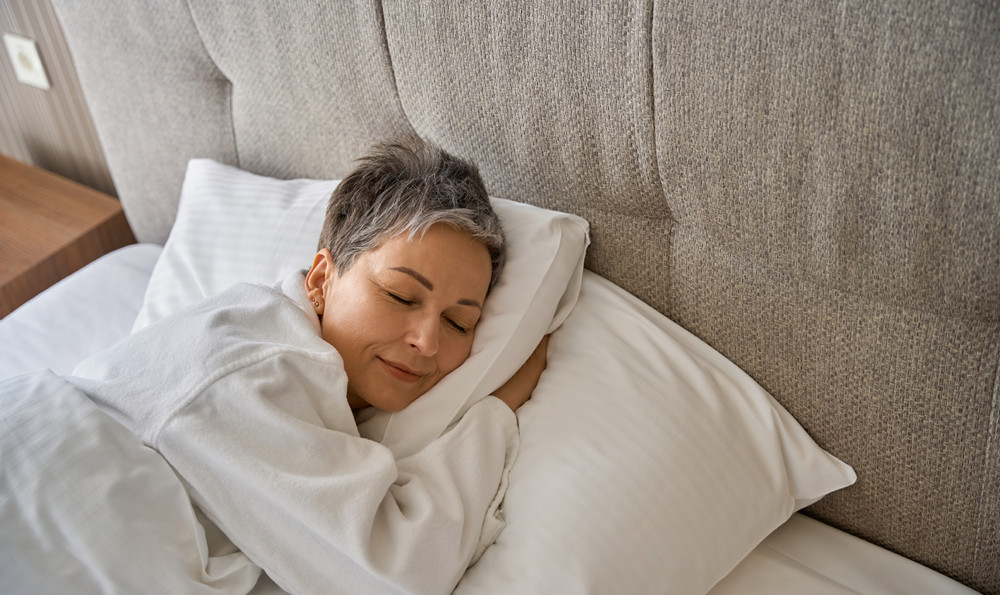Life is full of distractions. If late-night scrolling and early morning commitments are carving into your natural sleep cycles, it may be time to build new, consistent routines. According to Archana Jayakumar, DO, a sleep specialist at Atlantic Health System, bookending your sleep with morning and evening rituals will lead to more restorative and restful sleep.
“The lack of routine is one of the biggest disruptors I see in patients struggling with insomnia,” says Dr. Jayakumar, noting that adults need seven to nine hours of sleep each night. “The best way to develop good sleep patterns is to understand the interplay between our circadian rhythm, light exposure, food choices, and winding-down rituals.”
Morning Routines Set the Tone
Believe it or not, a good morning routine plays a crucial role in how well you sleep at night. It is all based on your circadian rhythm, the internal clock that governs when you feel alert or sleepy.
1. Bright light exposure is your natural alarm clock
Morning sunlight is the best way to get your circadian rhythm on track. 30 minutes outside lets your brain knows it’s daytime. During dark winter months, light therapy boxes help simulate natural light to boost serotonin and regulate sleep-wake cycles.
2. Diet fuels the body for both energy and sleep
Breakfast has a direct effect on our sleep. Many people with sleep disorders often lack a natural desire to eat in the morning, which can disrupt their circadian rhythm and metabolism. A balanced breakfast that includes proteins, fiber, and carbohydrates helps both energy and sleep.
3. Daily exercise makes falling asleep easier
Physical activity improves nighttime rest. The more active you are during the day, the more your body naturally needs sleep at night. Moderate exercise of at least 30 minutes three to five times a week helps enhance sleep inertia and sleep quality.
Evening Routines Fuel Rest
Your evening activities influence your ability to fall asleep—and stay asleep. A few simple habits can sync your body to its natural rhythm for a smoother transition into sleep mode.
1. Set a consistent wind-down schedule
Consistency is the key to regulating your internal clock. To wind down effectively, consider regulating your body temperature with a warm shower, setting the room between 65 and 68°F, and creating an optimal sleep environment that’s cool, dark, quiet, and disconnected from technology.
2. Limit blue light exposure to protect natural sleep hormones
Blue light from phones, computers, and television disrupts your brain’s ability to produce melatonin, the hormone that prepares the brain for sleep. It’s best to limit screen time at least 60 minutes before bed and to use blue light filters on devices.
3. Avoid stimulants, heavy meals, and long naps
Caffeine stays in your body for hours, so avoid it in the afternoon and evening. Large meals late at night can lead to nighttime indigestion, so try to have your last meal at least three hours before bedtime. Afternoon naps interfere with nighttime sleep, so keep them to about 15 or 20 minutes.
“I like to compare sleep inertia to a roller coaster,” says Dr. Jayakumar. “You get on the roller coaster in the morning and you're going up the hill throughout the day. By the time you get into bed at night, you’re hopefully at the top of the track, tired from the day, and you fall quickly into sound sleep.”








